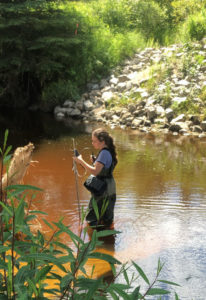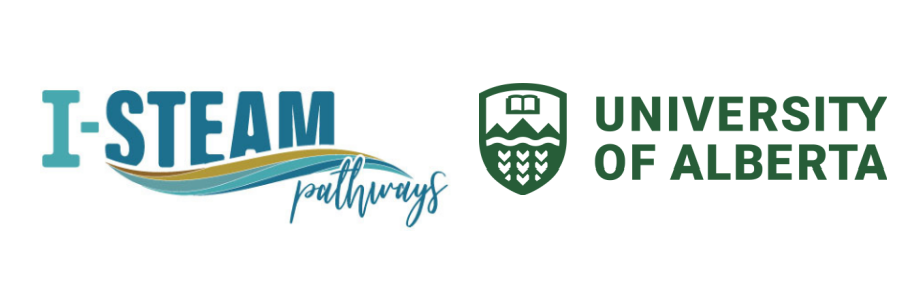The Program

The I-STEAM Pathways Environmental Education and Research Program for Indigenous undergraduate students responds to the imperative for Indigenous worldviews to be incorporated into environmental policy and practice.
An experiential, cross-disciplinary learning program, it enables First Nations, Métis and Inuit students to gain research experience in a range of environmental fields, including science, environmental engineering, environmental law and policy. The program also provides a pathway to graduate studies in environmentally-related disciplines and opportunities to explore career possibilities in environment-related fields.
The long-term goal of the I-STEAM Pathways program is systemic change in addressing critical environmental issues through the incorporation of Indigenous knowledge, ethics and worldviews in environmental policy, planning and practice.
Successful applicants become part of a fully-paid Summer Internship cohort that works closely with leading environmental experts and researchers from the University of Alberta. Every student participates in non-credit interdisciplinary seminars and engages in a hands-on research project under the mentorship of an expert researcher.
Background
The 2020 inaugural Internship program saw 13 Indigenous students enrolled into 11 research projects 10-16 weeks in duration, under the supervision of 11 of the University’s top researchers. The projects spanned a wide range of subject matter from Resource Economics and Environmental Sociology Professor Debra Davidson’s work on monitoring the social and environmental impacts of resource extraction in the North, to Engineering Professor Michael Lipsett’s development of amphibious robots to conduct environmental monitoring, and Earth and Atmospheric Science Professor Tara McGee’s investigation of the impacts of wildfire smoke on Indigenous communities.
The following year saw 54 applications received, and 20 Indigenous students enrolled in 19 research projects, again covering a wide range of subject matter, from pollinator bees to effect of tree host and population phase on dispersal of mountain pine beetles and developing air quality monitoring devices for remote and reserve communities.
In 2022 and 2023 the program both consolidated and expanded the range of environmental research possibilities for summer internships. We were delighted to form a partnership with the National Research Council, Canada, whose unstinting support for the program has enhanced and expanded the program offerings and opportunities for students.
Initially provincially funded, the program now relies entirely on the generosity of public and private donors to support Indigenous interns and scale up the program. Learn more about how you can support the program, or contact us directly.
Community Engagement
Our program development process and approach was supported by Paul First Nation Industrial Relations Corporation (PFN IRC) represented by Raymond Cardinal, environmental assessment and risk management expert who served as Indigenous Expert and liaison person on their behalf, and the support and blessing of the late Elder Lloyd Saulteaux. All have our deep gratitude.
The Team
Situated within the Indigenous Initiatives program at the University of Alberta, the cross-disciplinary I-STEAM Pathways program is Indigenous Co- led by researchers and experts from across the University of Alberta and supported by the College of Natural and Applied Sciences and the College of Social Sciences and Humanities. The I-STEAM Pathways team comprises:
Program Leads
- Dr. Professor Makere Stewart-Harawira, (New Zealand Maori), Indigenous, Environmental and Global Studies, College of Social Sciences and Humanities | Faculty of Education
- Dr. Chelsea Benally, (Navajo), Asst. Professor, Environmental and Indigenous Engineering, College of Natural and Applied Sciences |Faculty of Engineering
- Dr. Professor Greg Goss, Biological Sciences, College of Natural and Applied Sciences | Faculty of Science
- Grace Cardinal-Gordon, Program Coordinator
Stay up to date with the program by liking us on Facebook or following us on Twitter and on Instagram.

